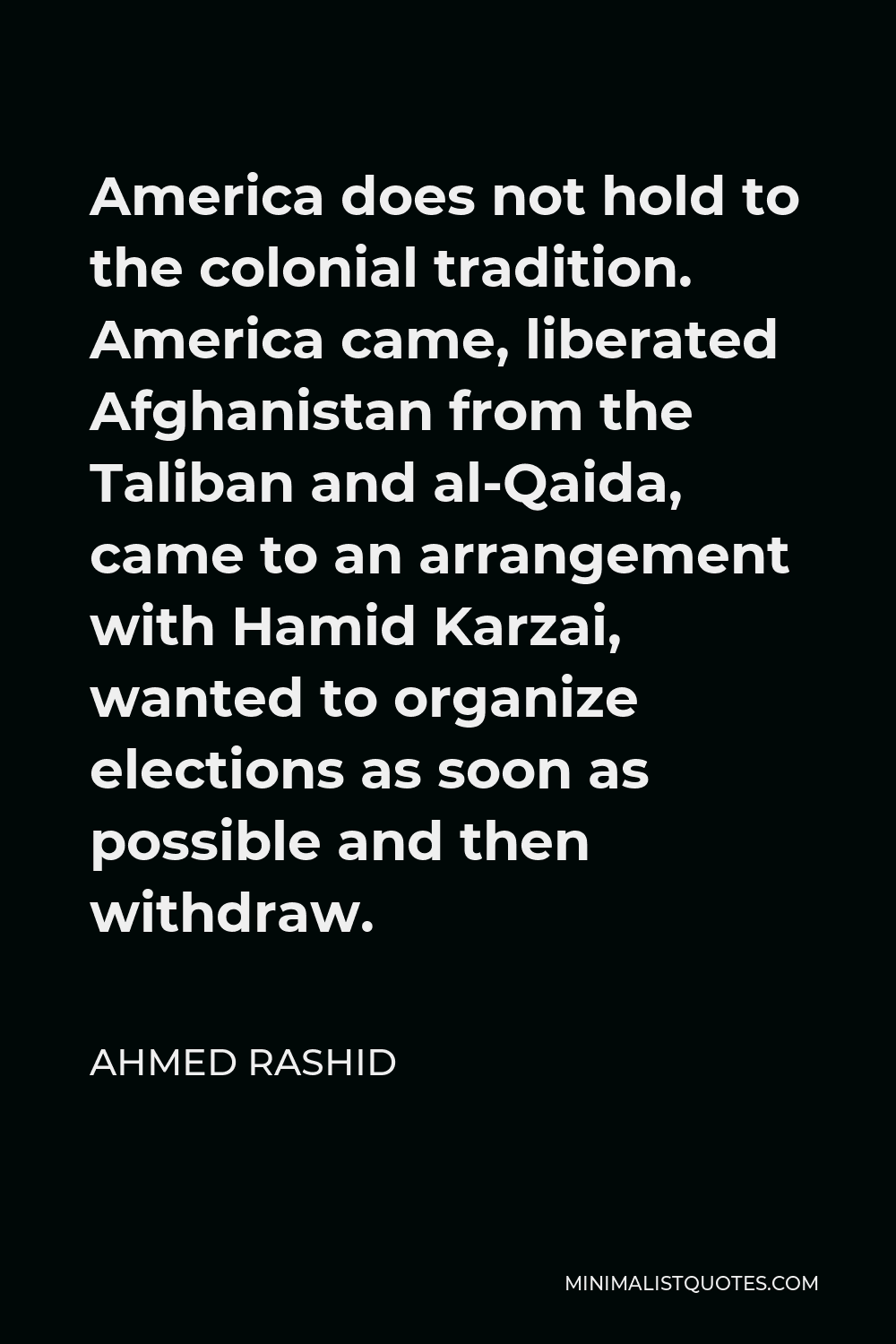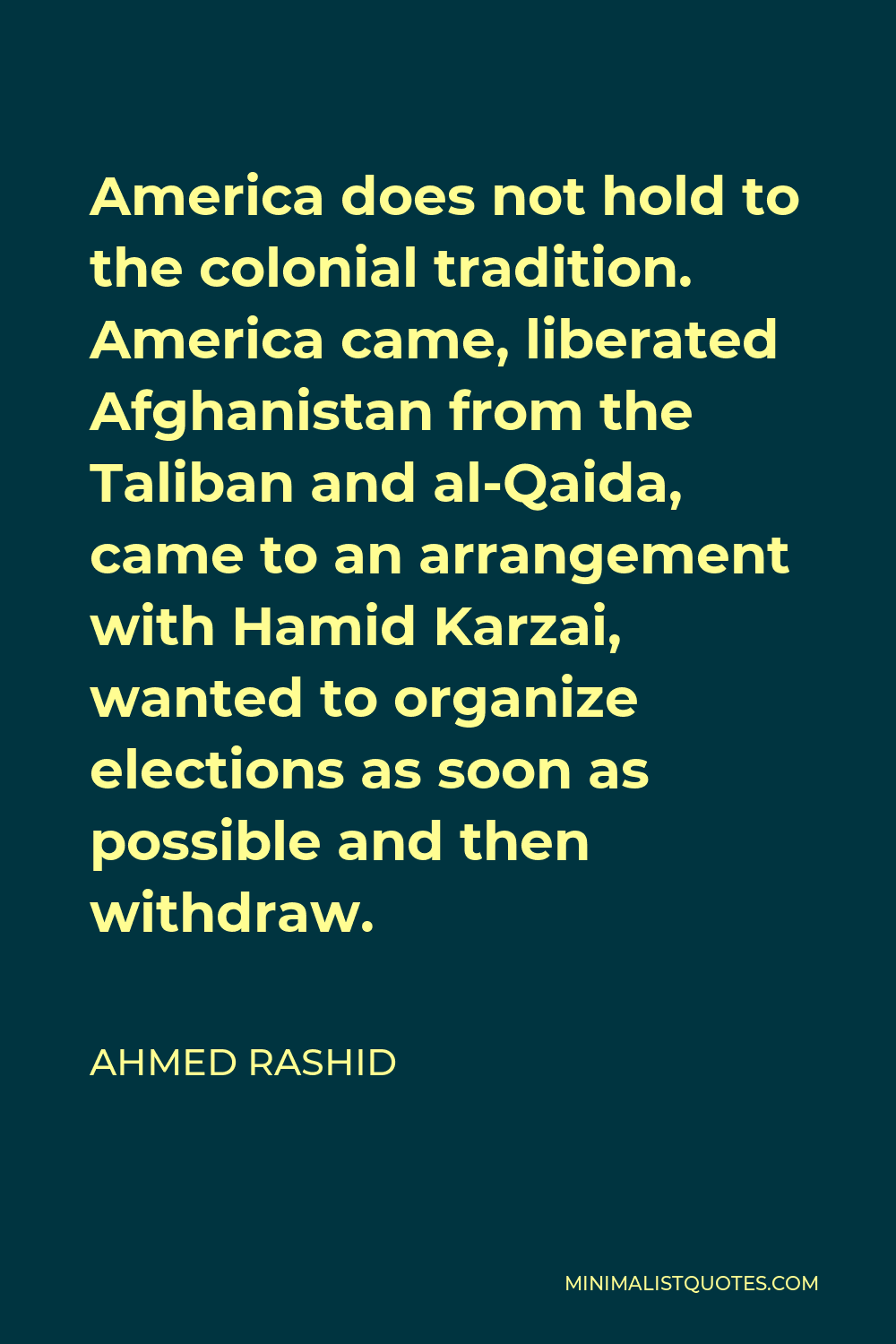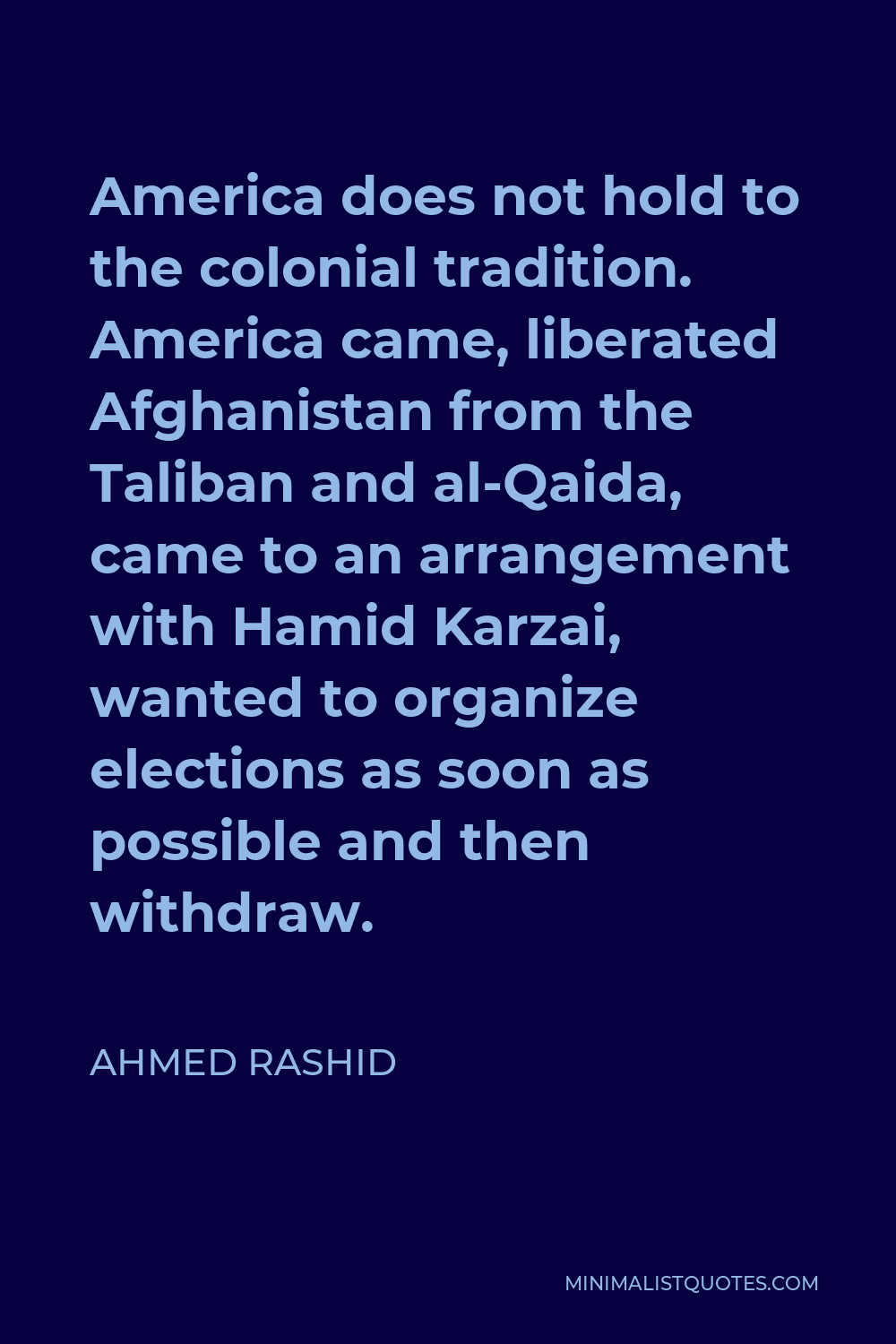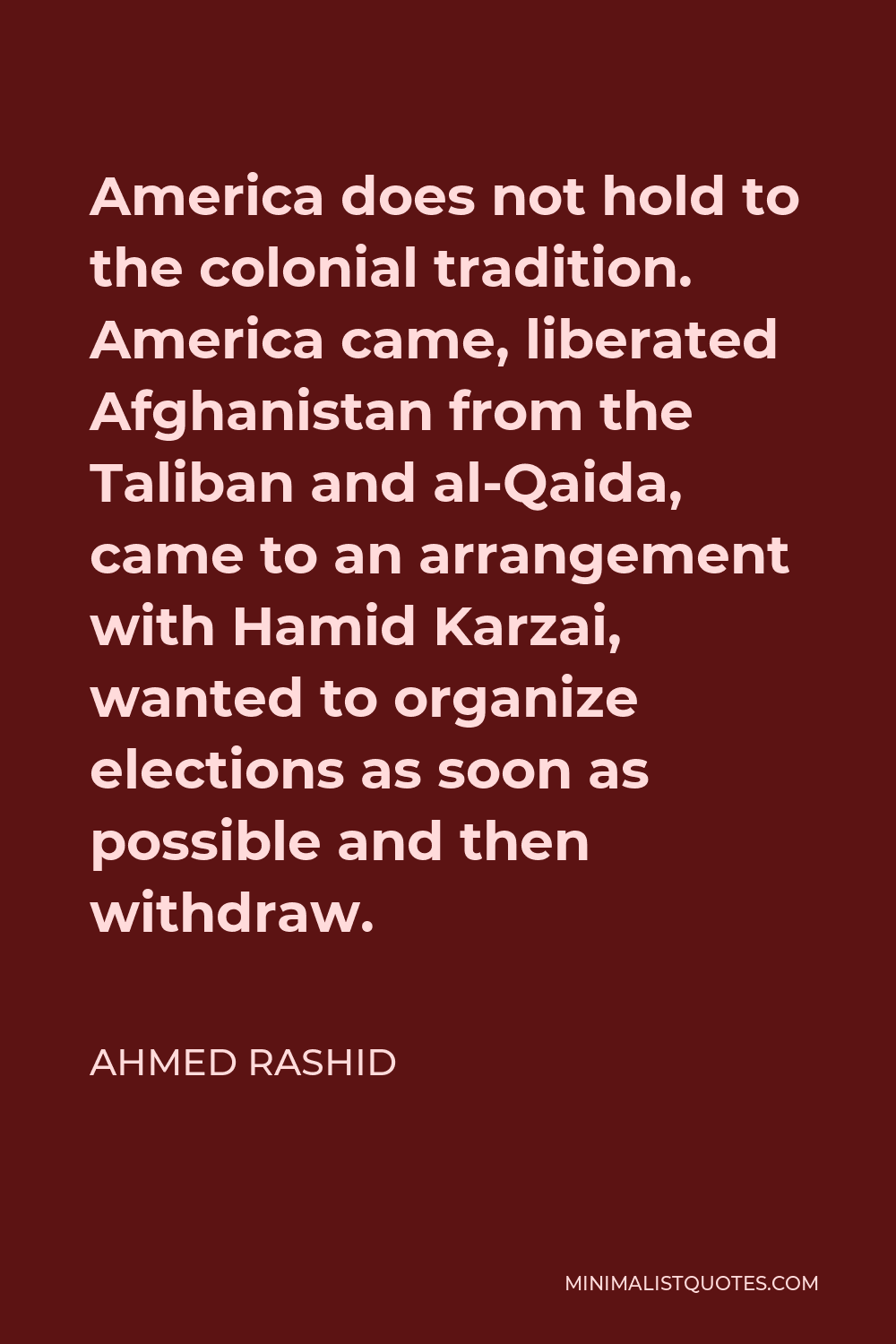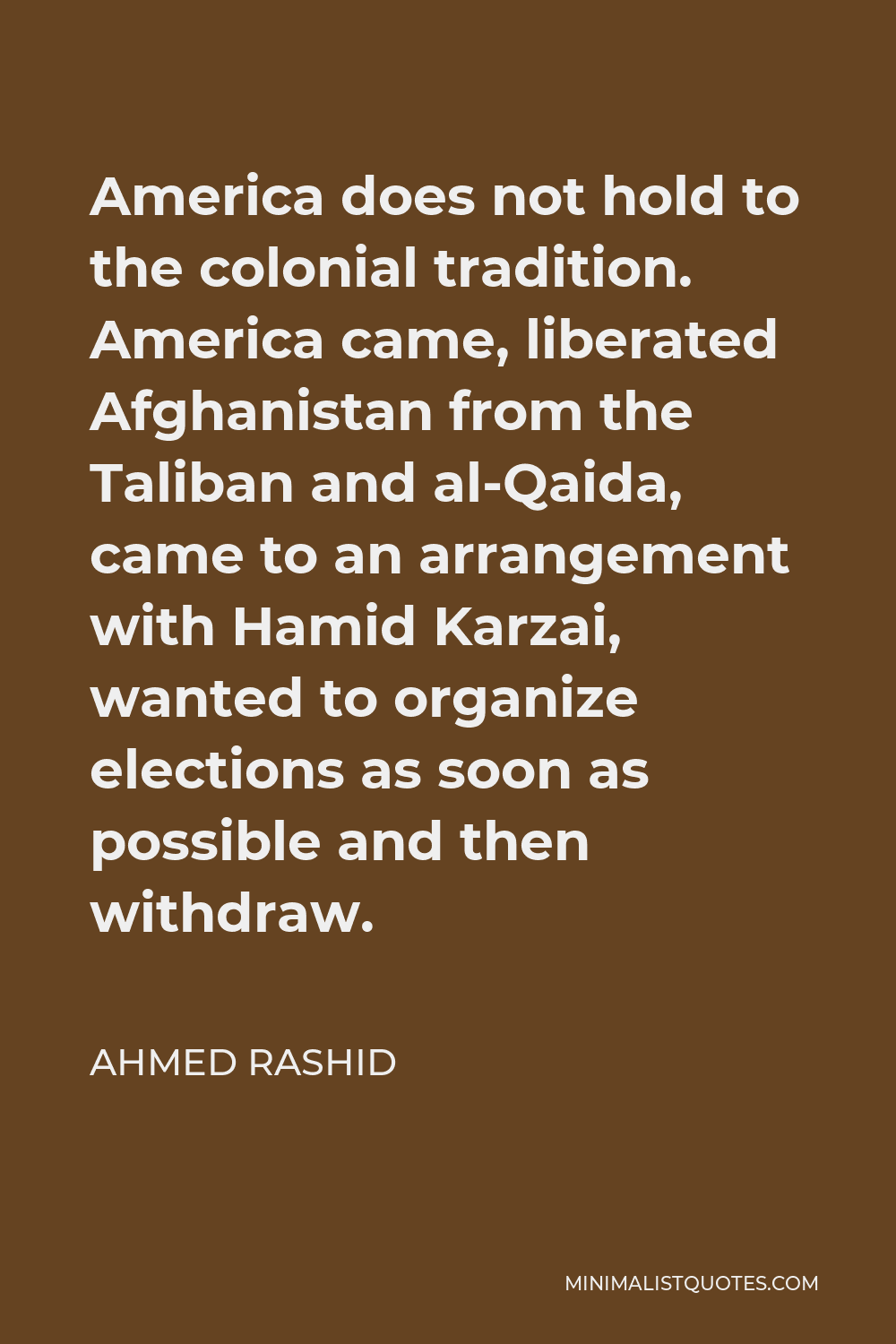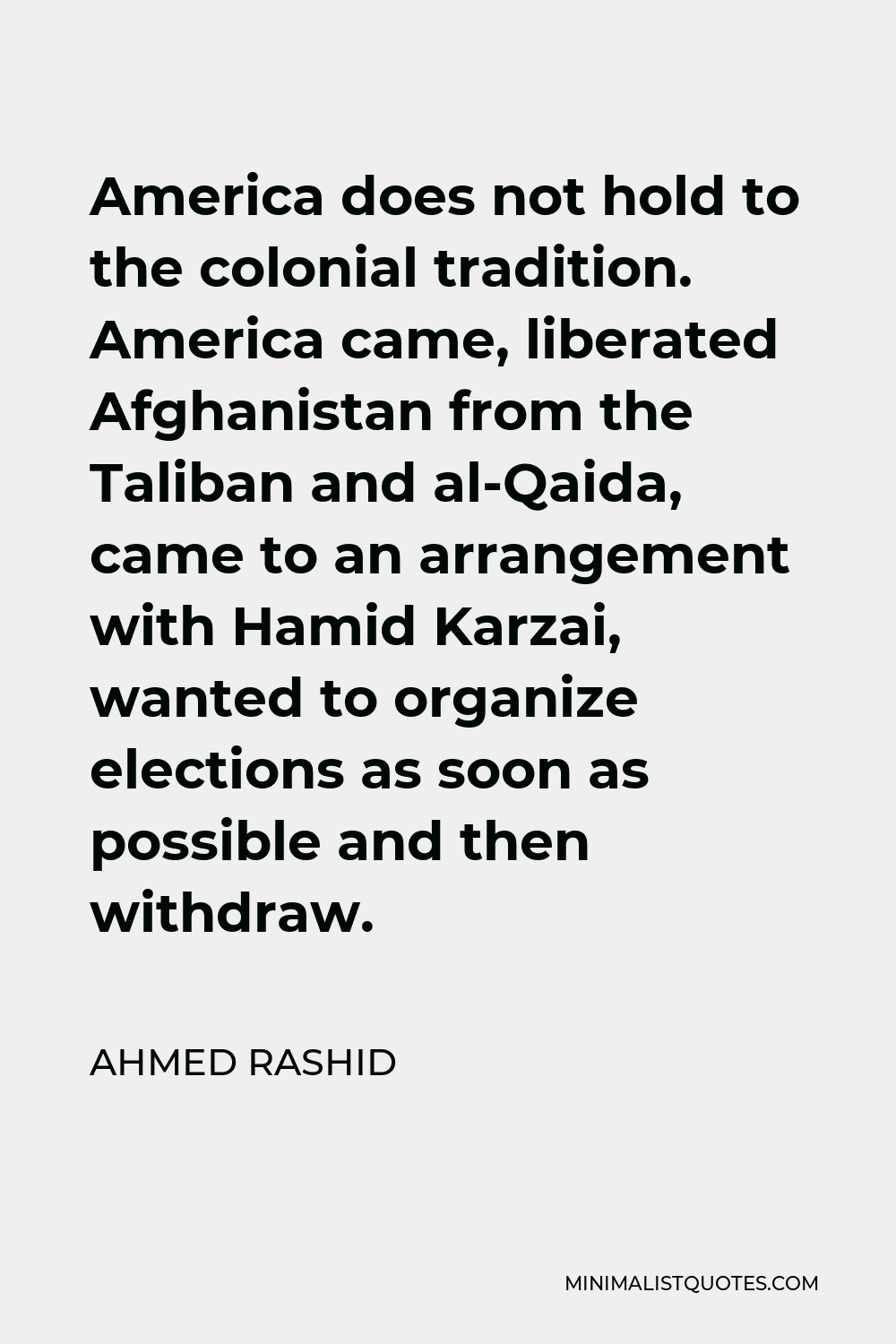vThis region harbors enormous potential. Pakistan could become the hub for the energy that is transported from Central Asia to South Asia. That could change the whole region.
AHMED RASHIDAmerica does not hold to the colonial tradition. America came, liberated Afghanistan from the Taliban and al-Qaida, came to an arrangement with Hamid Karzai, wanted to organize elections as soon as possible and then withdraw.
More Ahmed Rashid Quotes
-





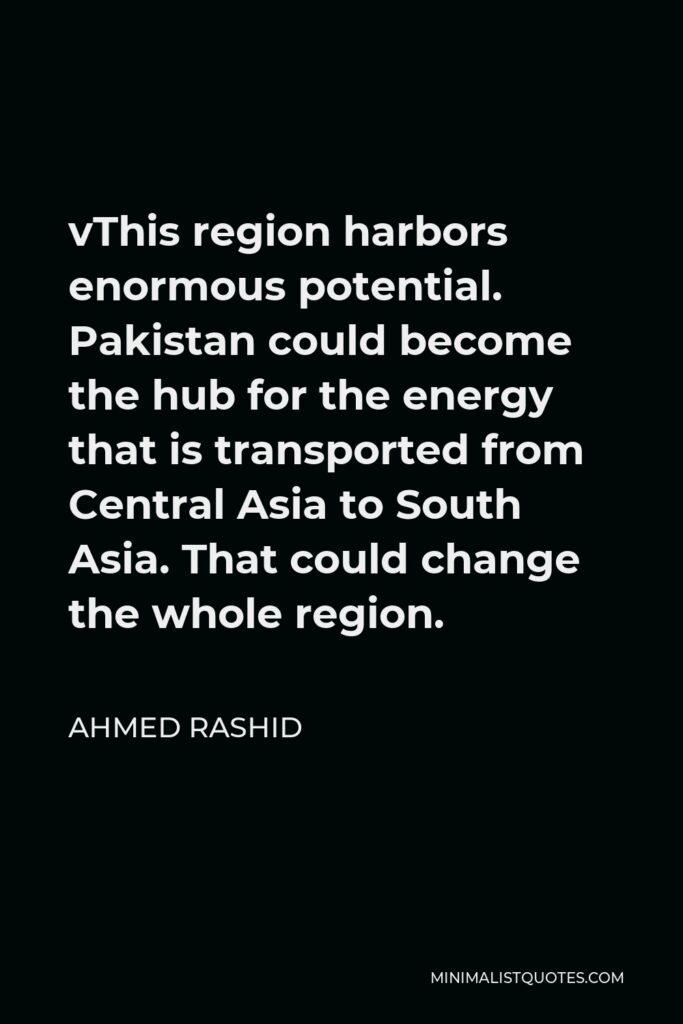

-





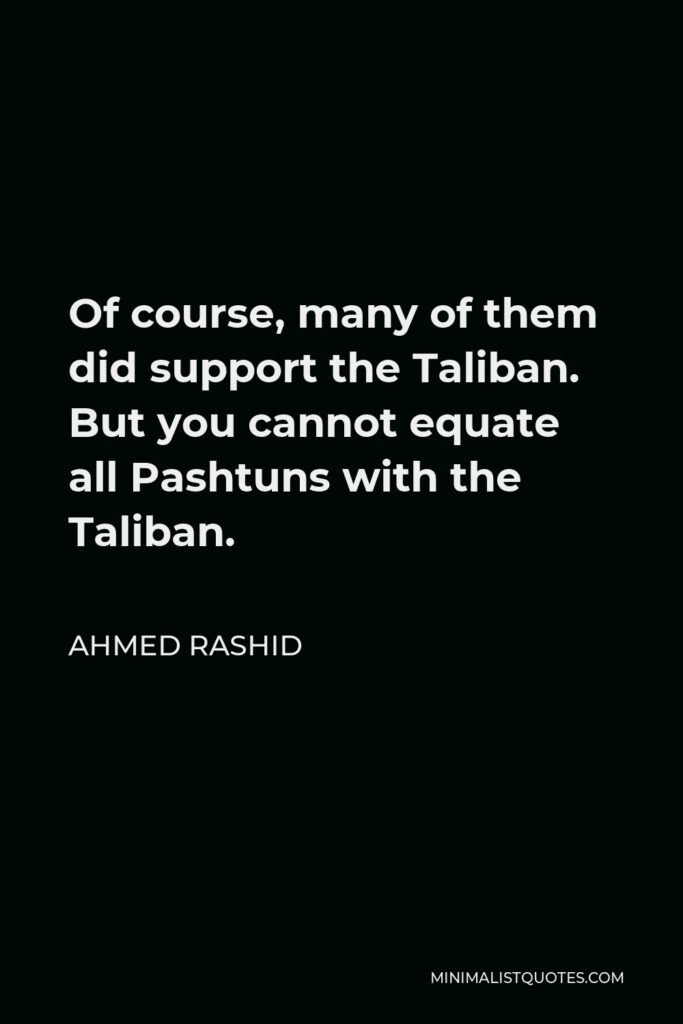

Of course, many of them did support the Taliban. But you cannot equate all Pashtuns with the Taliban.
AHMED RASHID -





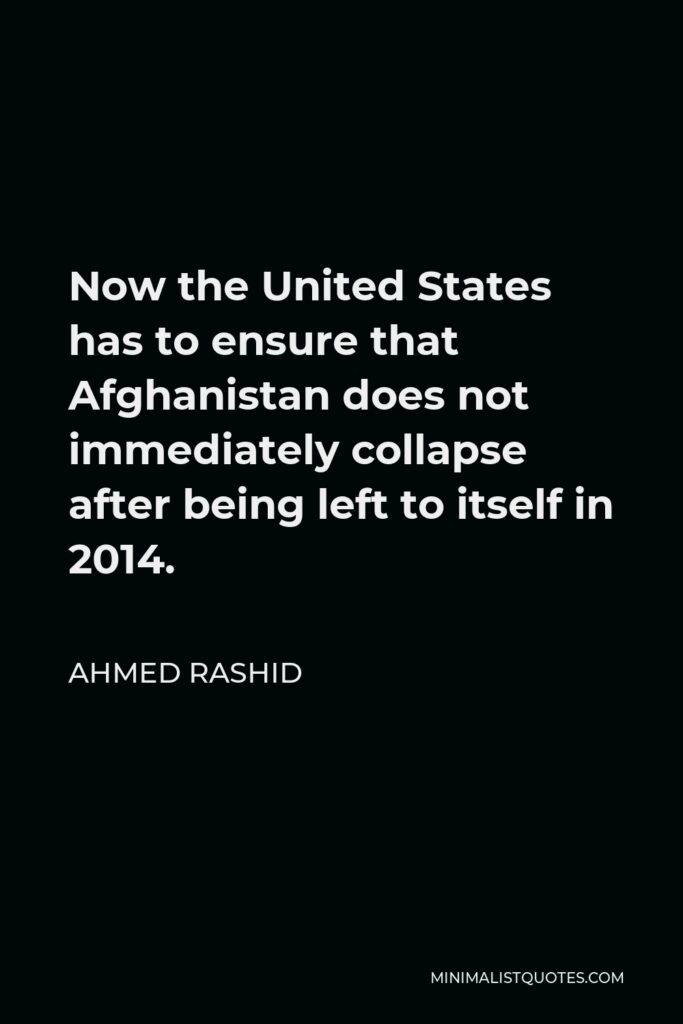

Now the United States has to ensure that Afghanistan does not immediately collapse after being left to itself in 2014.
AHMED RASHID -





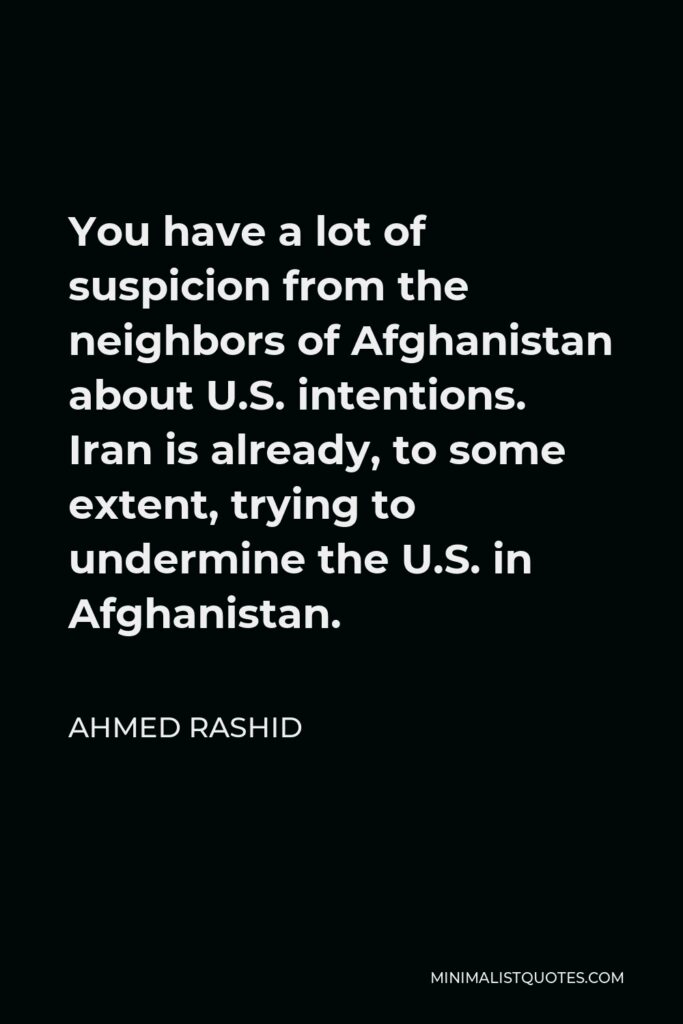

You have a lot of suspicion from the neighbors of Afghanistan about U.S. intentions. Iran is already, to some extent, trying to undermine the U.S. in Afghanistan.
AHMED RASHID -





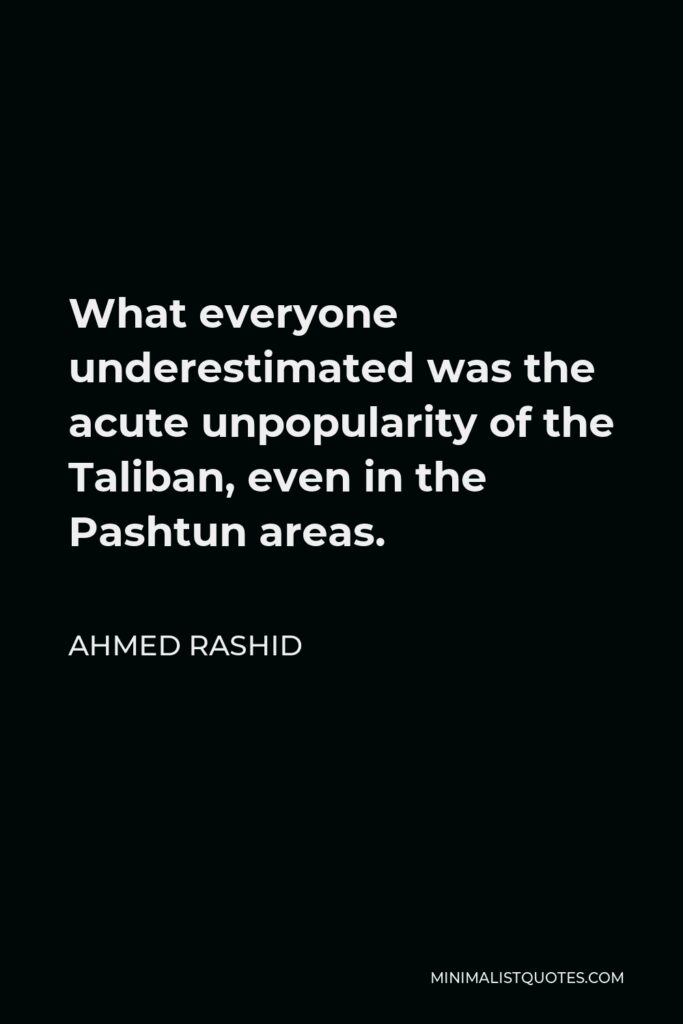

What everyone underestimated was the acute unpopularity of the Taliban, even in the Pashtun areas.
AHMED RASHID -





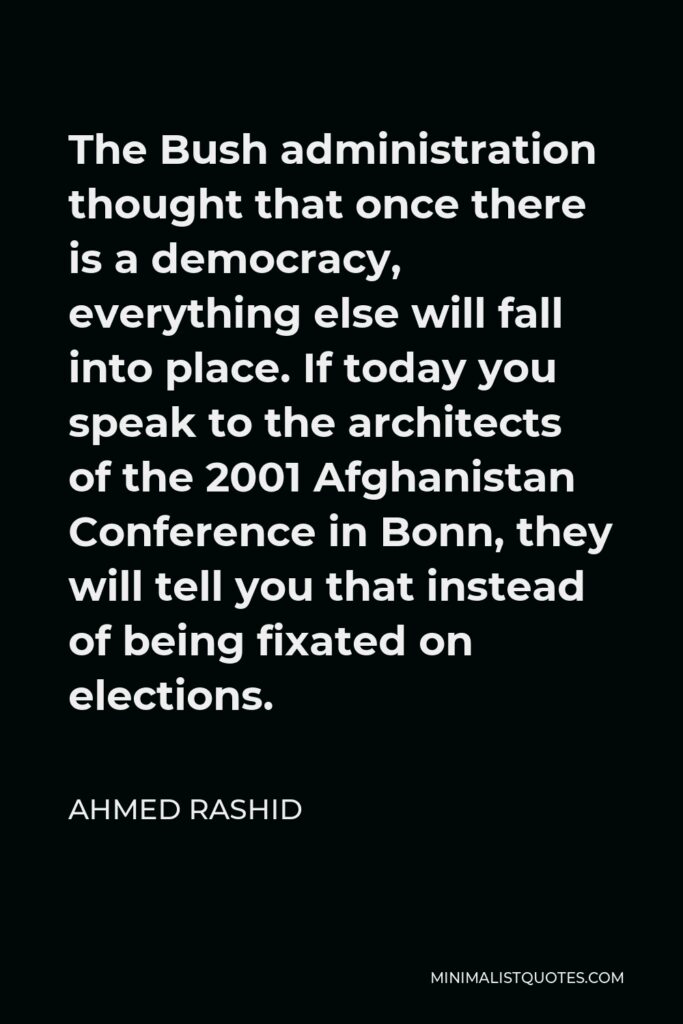

The Bush administration thought that once there is a democracy, everything else will fall into place. If today you speak to the architects of the 2001 Afghanistan Conference in Bonn, they will tell you that instead of being fixated on elections.
AHMED RASHID -







The Americans make their usual recommendations. They want to train the army for the fight with the rebels. US special forces are already in Mali.
AHMED RASHID -







George W. Bush and Tony Blair made the promise that they would not tolerate failed states because they could become a haven for terrorists. And today? The number increases.
AHMED RASHID -





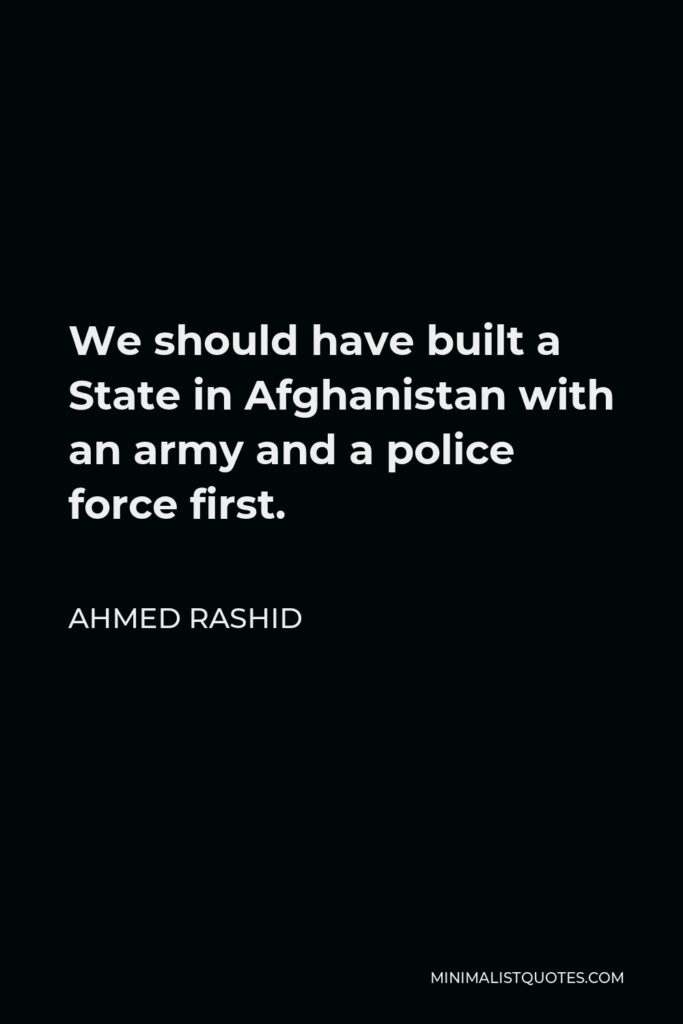

We should have built a State in Afghanistan with an army and a police force first.
AHMED RASHID -





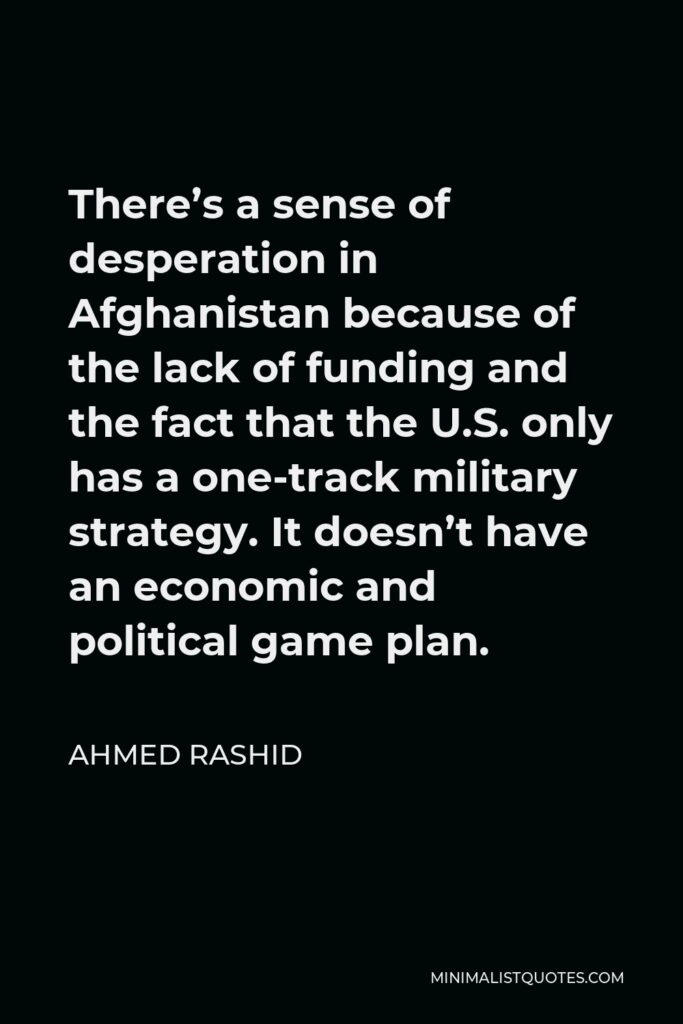

There’s a sense of desperation in Afghanistan because of the lack of funding and the fact that the U.S. only has a one-track military strategy. It doesn’t have an economic and political game plan.
AHMED RASHID -





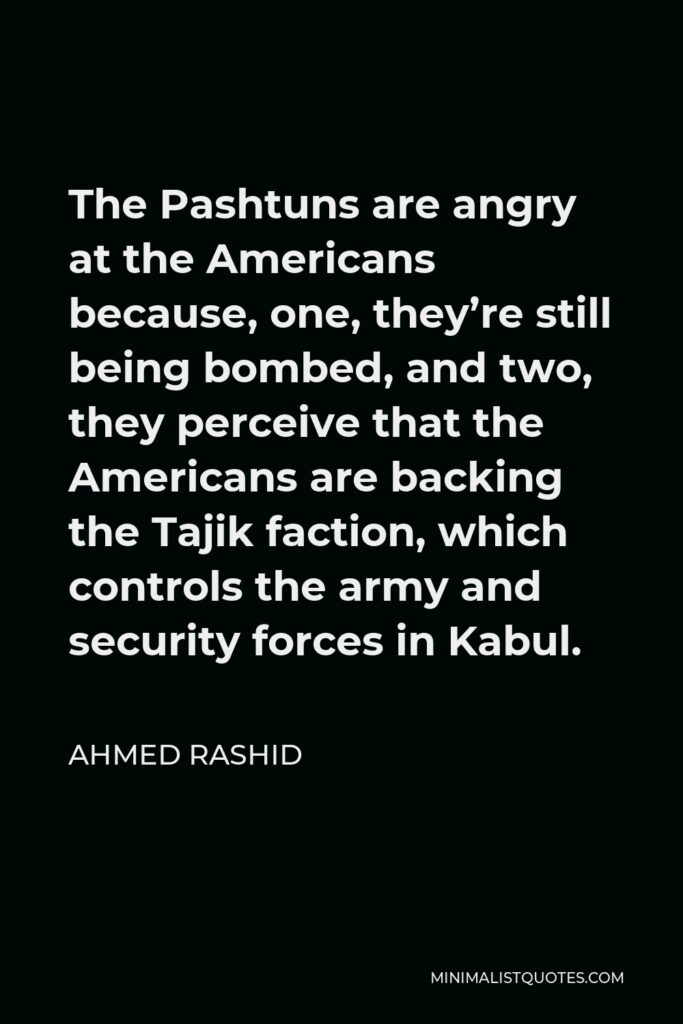

The Pashtuns are angry at the Americans because, one, they’re still being bombed, and two, they perceive that the Americans are backing the Tajik faction, which controls the army and security forces in Kabul.
AHMED RASHID -





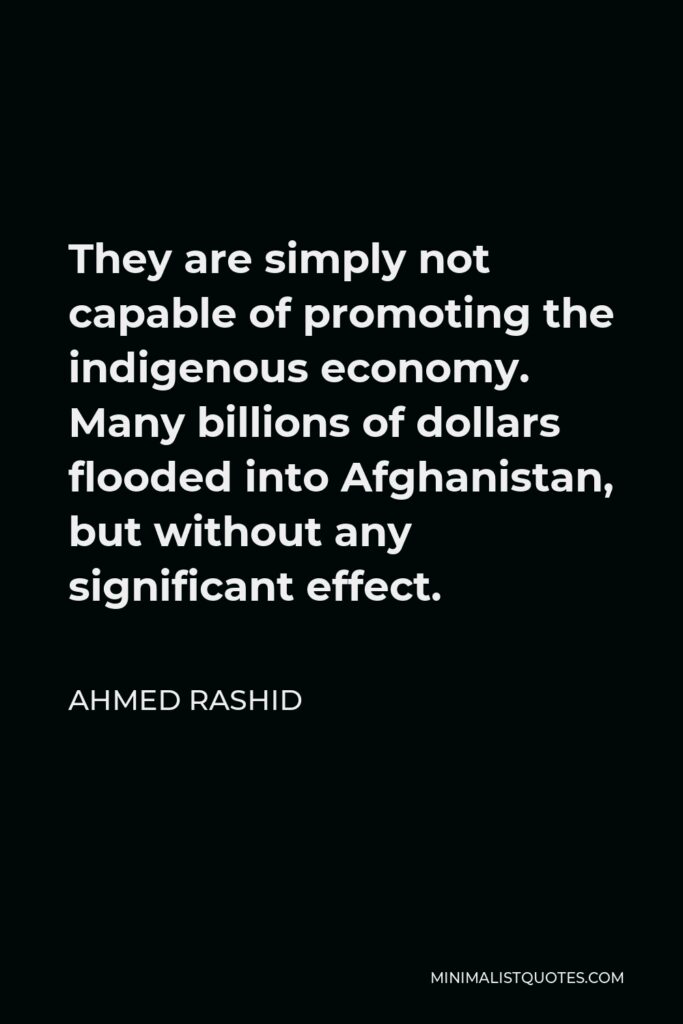

They are simply not capable of promoting the indigenous economy. Many billions of dollars flooded into Afghanistan, but without any significant effect.
AHMED RASHID -





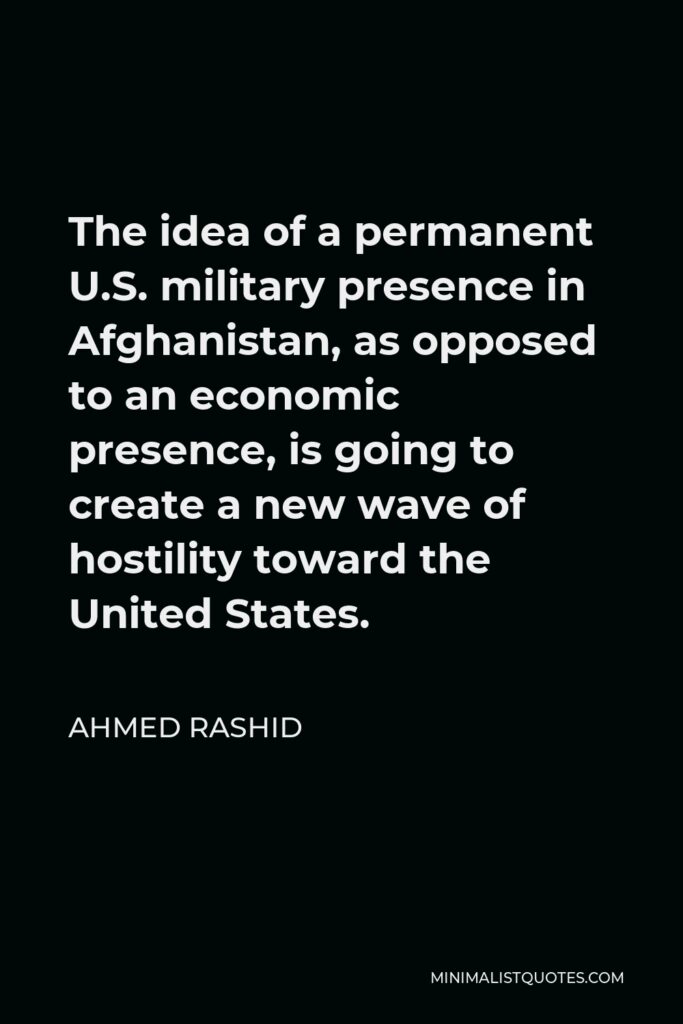

The idea of a permanent U.S. military presence in Afghanistan, as opposed to an economic presence, is going to create a new wave of hostility toward the United States.
AHMED RASHID -





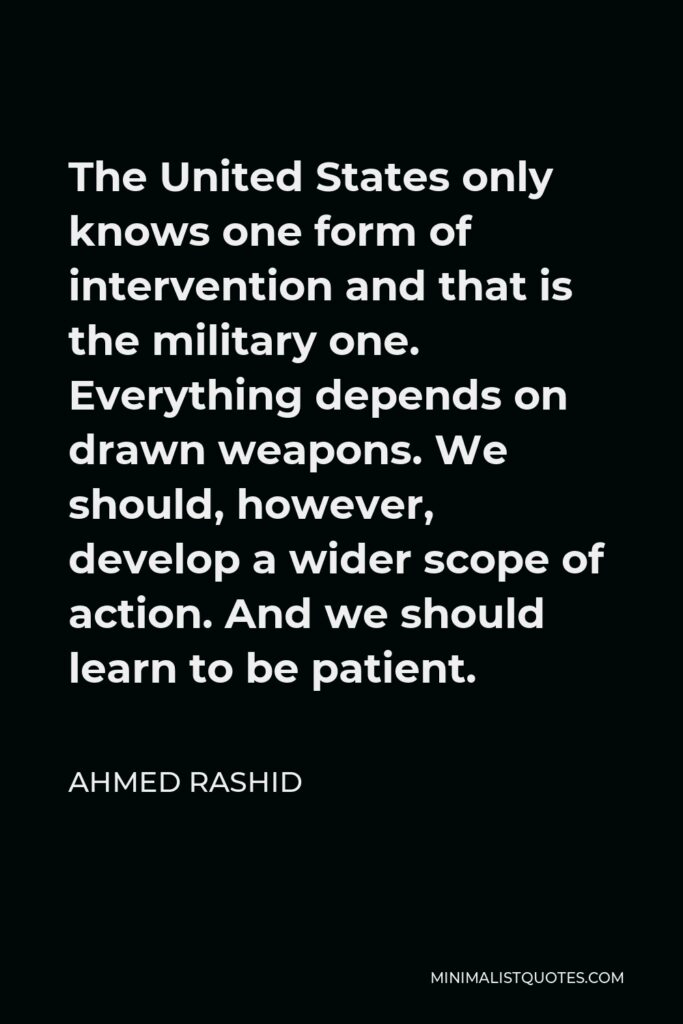

The United States only knows one form of intervention and that is the military one. Everything depends on drawn weapons. We should, however, develop a wider scope of action. And we should learn to be patient.
AHMED RASHID -





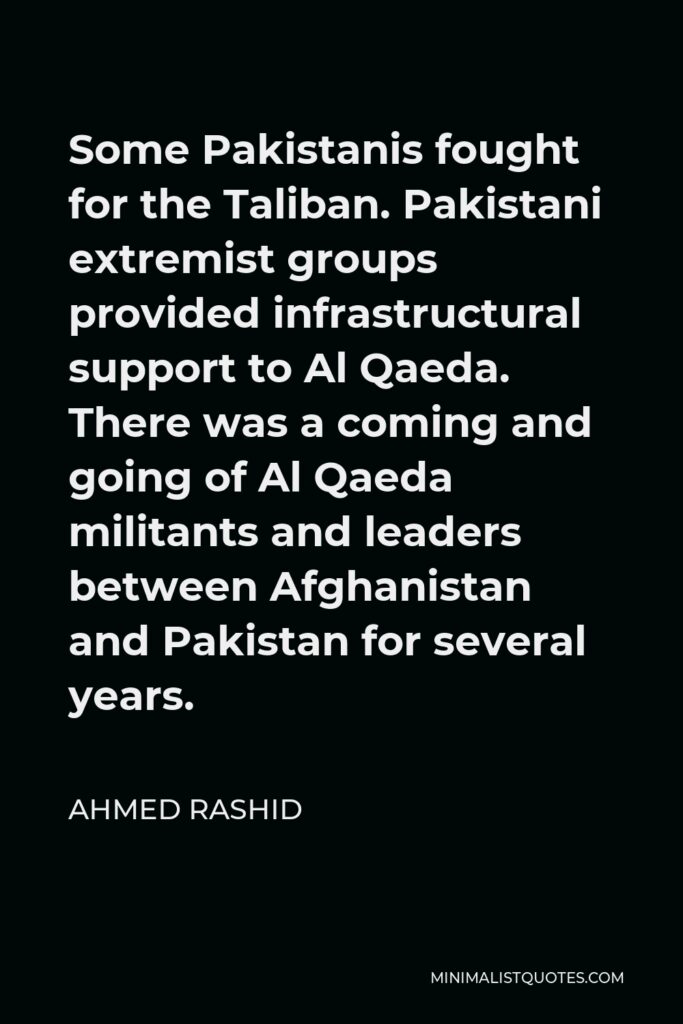

Some Pakistanis fought for the Taliban. Pakistani extremist groups provided infrastructural support to Al Qaeda. There was a coming and going of Al Qaeda militants and leaders between Afghanistan and Pakistan for several years.
AHMED RASHID -





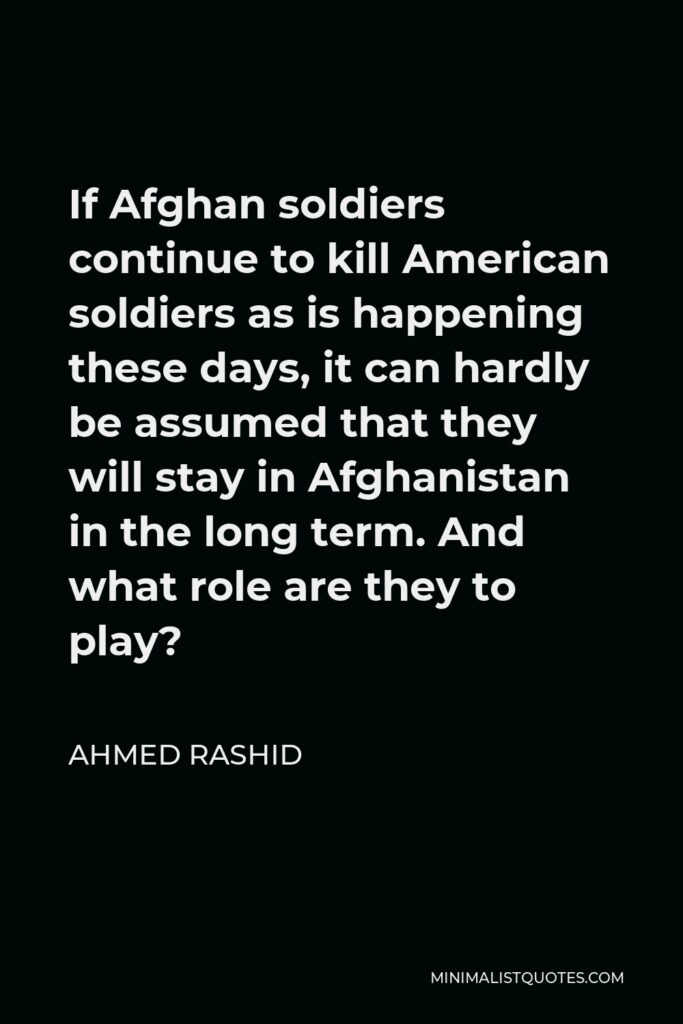

If Afghan soldiers continue to kill American soldiers as is happening these days, it can hardly be assumed that they will stay in Afghanistan in the long term. And what role are they to play?
AHMED RASHID
